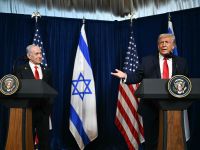Iraq was also center stage at the UN in New York, where the 26-27 February meetings between UN Secretary General Kofi Annan and Iraqi Foreign Minister Muhammad Said al-Sahhaf were the first high-level contacts between the two sides since December 1998, when UN arms inspectors left Iraq for the last time.
As such they could not be expected to make much progress towards resolving the differences between two parties whose relationship is contentious at best and adversarial at worst. Nonetheless, Mr Sahhaf said on 27 October that “we have to continue building on this dialogue because it is not an aim in itself.
It is a vehicle for something, namely to find a way out, a solution which we consider reasonable.” What looks reasonable in Baghdad, however, may seem less so in New York.
On 28 February, the official daily al-Thawra listed five conditions for a resumption of cooperation with the UN: a “total and unconditional lifting of the embargo;” the establishment of a Middle East free of weapons of mass destruction, including Israel’s; an end to the no-fly zones in the north and south of the country; “a commitment by all states to respect the sovereignty of Iraq and not to meddle in its internal affairs;” and the treatment of Iraq “on an equal footing with other states.”
It seems very likely that this shopping list is only intended to establish a maximalist position from which to begin bargaining with the UN. Even in that perspective, however, last week’s talks in New York look like merely the first step in what promises to be a long, tedious and probably ill-tempered process.
(mees)
© 2001 Mena Report (www.menareport.com)







